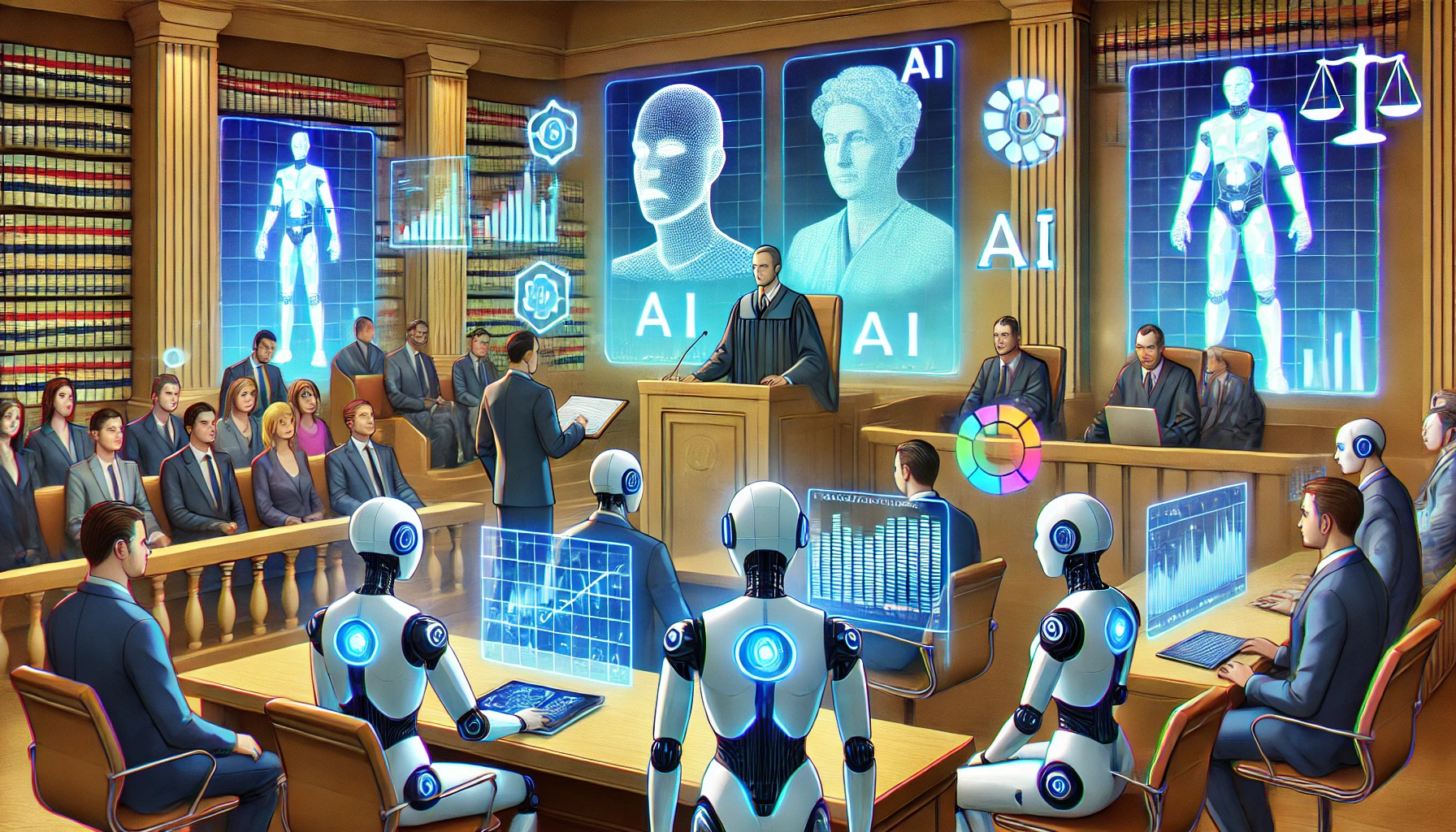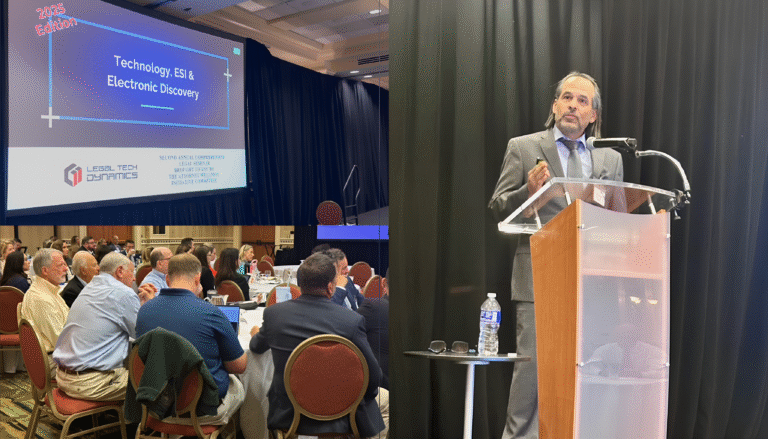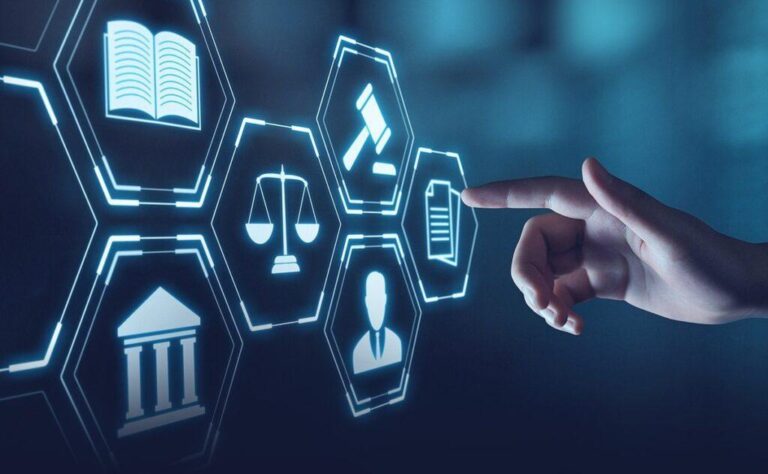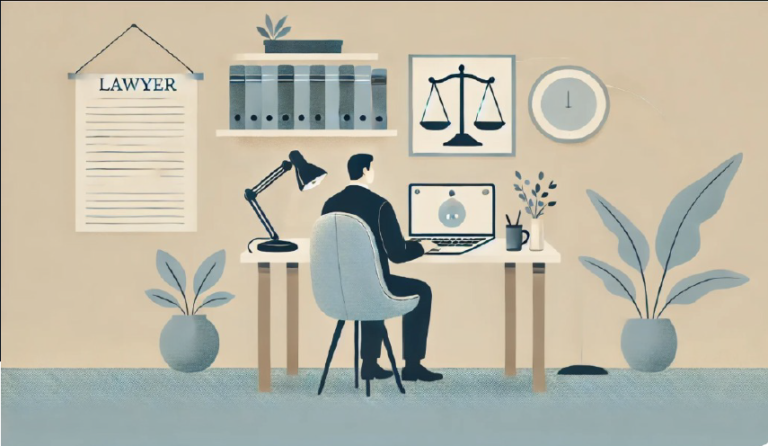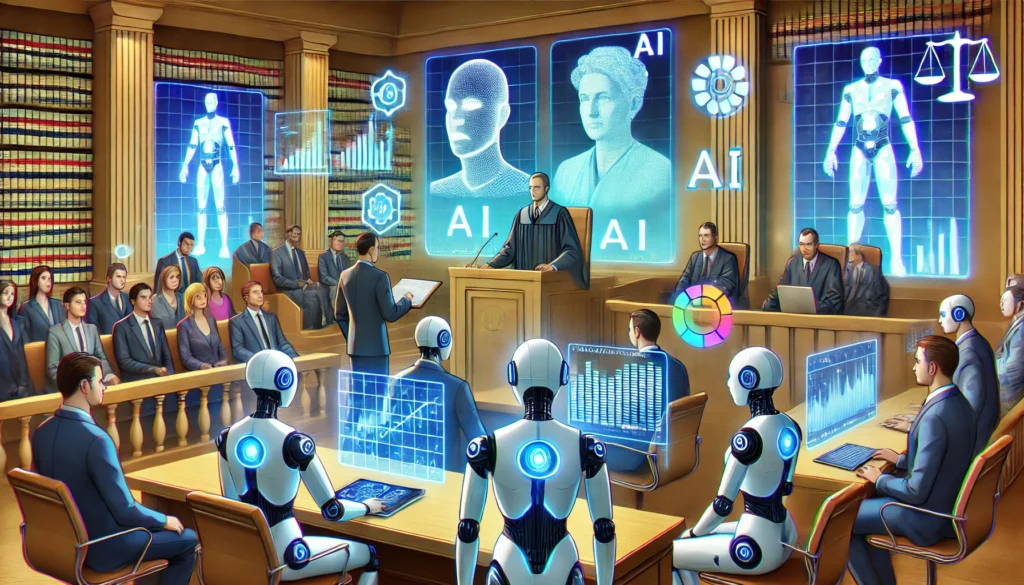By Carlos A. Baradat, Esq. | Legal Tech Dynamics
Balancing Innovation and Tradition in Courtroom Advocacy
Artificial intelligence is transforming nearly every industry, and the legal field is no exception. From streamlining research to gauging probable outcomes, AI and predictive analytics are reshaping how litigators, judges, and law students approach their craft. As a courtroom-approved digital forensics expert, e-discovery consultant, and law professor who has spent over ten years working with law firms across the country, I have witnessed firsthand how these technologies can offer valuable insights and enhance efficiency. Yet, they also require careful ethical and practical considerations.
Streamlining Research and Discovery
Attorneys traditionally spend hours immersed in research, sifting through stacks of documents and chasing down the right precedent. But today, AI-powered tools can significantly reduce this burden by scanning large data sets and highlighting the most relevant information almost instantly. Predictive analytics takes this a step further by evaluating past rulings, analyzing judge-specific tendencies, and reviewing case similarities to provide forecasts of likely outcomes. With this knowledge, lawyers can make more informed decisions about whether to settle, how to structure arguments, and when to pursue a particular litigation strategy.
In working closely with law firms nearly fifteen years, I have observed that these resources not only save time but also enable deeper analysis and greater creativity. Instead of being bogged down by routine tasks, attorneys can focus on crafting persuasive arguments and developing strategic case theories. This shift allows legal teams to devote more energy to client relations, negotiation, and courtroom advocacy skills that rely on the human element to achieve their full potential.
Improving Court Efficiency
Judges and court administrators can also benefit from AI-assisted technology. Scheduling and docket management tools can help streamline caseloads, minimize delays, and ensure that urgent matters receive prompt attention. By leveraging advanced machine learning and natural language processing tools, automated triage systems can flag related filings, highlight potential inconsistencies, and even supply judges with comprehensive summaries that pinpoint key issues, thereby streamlining the legal process from the very outset. These innovations can lighten administrative burdens and improve judicial efficiency, particularly in high-volume jurisdictions.
Although these efficiency gains are undeniably valuable, they also raise important questions about how judicial discretion and professional judgment intersect with machine-generated results. Judges and attorneys bear the responsibility of ensuring that individual circumstances and fairness are properly accounted for in every decision. They must also weigh broader public policy considerations to uphold justice and equity. While technology can offer data-driven insights that aid in decision-making, the ultimate responsibility to interpret and apply the law fairly and consistently remains firmly with the judiciary.
Navigating Ethical Considerations
Ultimately, AI and predictive analytics may help reduce certain human biases, but they can also perpetuate or even exacerbate them if the underlying data is skewed. For example, an algorithm trained on cases with historical racial or socioeconomic disparities may reinforce those disparities in future outcomes. Lawyers should be prepared to examine and challenge algorithmic recommendations that appear inconsistent with fundamental norms of equity and due process.
Data security and confidentiality present additional considerations. When these tools analyze voluminous documents and case files, it is crucial to ensure compliance with ethical rules that govern client information. Firms and court systems must adopt secure platforms, train personnel on data handling protocols, and establish well-defined procedures for managing and auditing AI outputs.
Preserving the Human Element
While technology assists us in remarkable ways, it does not negate the need for human intuition, empathy, and the nuanced judgment that characterize skilled advocates and jurists. Attorneys who understand how to present evidence clearly, synthesize complex legal arguments, and connect with judges or jurors will continue to stand apart. Similarly, judges remain the ultimate arbiters of credibility, legal interpretation, and just outcomes.
For new entrants to the profession, the integration of AI into everyday practice means that mastering the fundamentals (legal research, persuasive writing, and courtroom presence) must go hand in hand with technological fluency. Law students who learn to interpret data analytics and identify potential algorithmic biases will be well positioned to shape the future of the legal landscape.
Charting a Way Forward
The potential of AI and predictive analytics to transform courtrooms is both exciting and complex. These tools can save time, reduce costs, and generate insights that allow for more strategic case development. At the same time, responsible use demands vigilance regarding ethical, data security, and fairness issues. By embracing new technology without abandoning the indispensable role of human expertise, legal professionals can better serve clients, administer justice, and uphold the highest values of the legal profession.
As we stand on the cusp of this technological evolution, a balanced approach that harnesses the strengths of machine learning while affirming our commitment to fairness, equity, and the rule of law is essential. AI may forecast outcomes and streamline tasks, but ultimately, it is our collective judgment, skill, and ethical responsibility that will shape the future of legal practice.
—
Legal Tech Dynamics: Digital Forensics, Legal Tech Consulting, and eDiscovery Services in Central Florida, South Florida, and Nationwide
At Legal Tech Dynamics, we specialize in digital forensics, eDiscovery, legal tech consulting, law firm technology training, attorney ESI consulting, and litigation consulting. With offices in Naples, FL, and Boca Raton, FL, we proudly serve clients throughout Central and South Florida, as well as nationwide, including major cities such as Fort Lauderdale, Miami, Tampa, Fort Myers, Marco Island, West Palm Beach, and Orlando.
Whether you’re navigating digital evidence analysis, managing litigation holds, responding to requests for production, or seeking guidance on ethical and privacy considerations in eDiscovery, our experienced team is here to help. We deliver tailored solutions to attorneys, law firms, corporate clients, and individuals, ensuring secure digital data, improved legal case management, and successful eDiscovery outcomes.
📞 Call us today at 239-221-6359 to learn how we can support your legal and technical challenges and help you achieve your goals with confidence.

